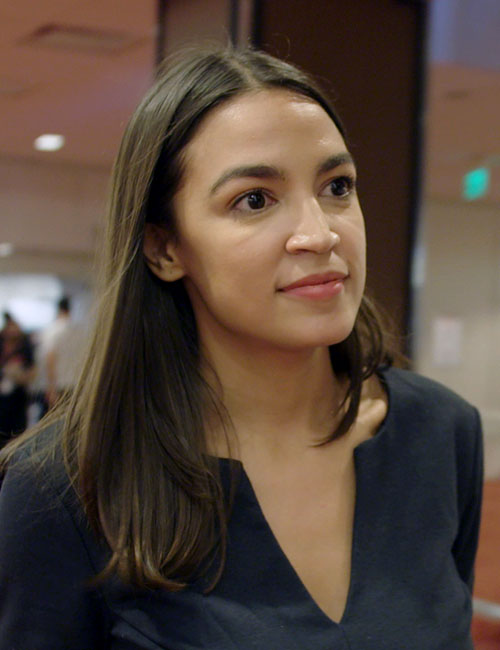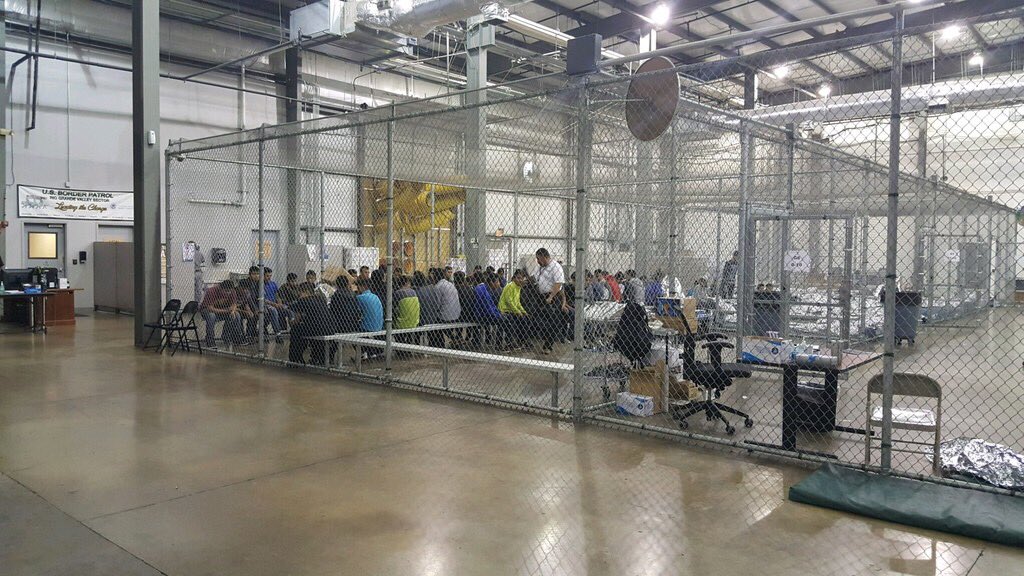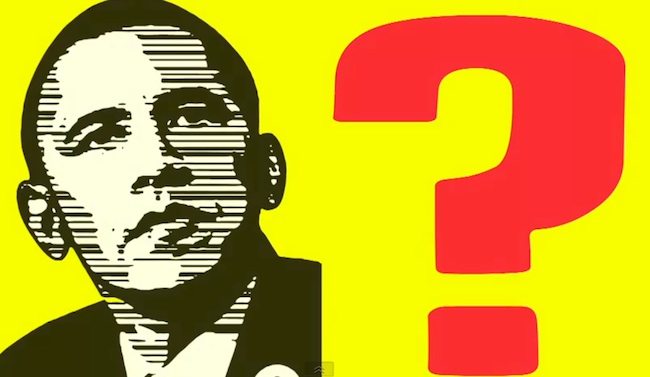When I visited Nueva York a couple of weeks ago, Alexandria Ocasio-Cortez was still a human being, a human subject made of flesh and Boricua blood. Most of my friends in those parts of El Barrio and El Bronx that were still Boricua were mourning the passing of my old friend Angelo Falcón, a towering figure in Puerto Rican and non-Puerto Rican New York. Angelo died in May.
The loss of a lifelong leftist brother had left many heavy hearts and long faces in the hood. The crushing weight of the gentrification driving Puerto Ricans out of Nueva York felt even more ominous with his loss. Within such a climate, the mention of the the 28-year-old former bartender and socialista congressional candidate from the Bronx took on a musical quality, lifting spirits in the way that newborns provide solace to a family that has lost a loved one.


Alexandria Ocasio-Cortez in 2018 (Photo by Composemi)
“Watch,” my friend Rafa said in his endearing Nuyorican accent as we stood, down the street from the projects outside my favorite bar in El Barrio, “that kid’s gonna whip Crowley’s ass. Watch.” Despite the fact that the “bullshit media” and “Democratic party hacks” allied to powerful incumbent Democrat Joe Crowley (her opponent in the race for New York’s heavily Puerto Rican and Latino 14th district) paid little to no attention to Ocasio-Cortez, Rafa and countless others had faith.
Gabriela, my close friend’s half-Cuban, half-Boricua daughter who calls me “Tío,” met Ocasio-Cortez in Soho. She came away from the encounter feeling Ocasio-Cortez “spoke with a lot of heart and, most importantly,” she added on a Facebook post, “you could see the hope in her eyes.” A bright socialista red flor de maga had risen from the soil left fertile by Angelo, Lolita Lebrón, Pedro Albizu Campos and countless other leaders in the long legacy of the Puerto Rican left.
And then, after she defeated Crowley last Tuesday, the liberal-progressives and media got a hold of her-and bled her of her humanity.
Immediately following confirmation of Ocasio-Cortez’s stunning victory, the Associated Press greeted her with this tweet:
BREAKING: U.S. Rep. Joe Crowley defeated by young challenger in Democratic primary in New York.
— AP Politics (@AP_Politics) June 27, 2018
The AP denied Ocasio-Cortez not just her name. They denied her total identity, except that ascribed to her by them: “young challenger.”
Soon after, other mainstream and liberal media followed suit, transforming Ocasio-Cortez from a woman formed in the great traditions of the Bronx community and the Puerto Rican left culture into a “Latina” and “progressive,” without locality, without history, without identity, except that ascribed by the liberals and media that paid no attention to and even attacked her before Tuesday.
The process through which liberal-progressives and the media that sympathizes with them is erasing Ocasio-Cortez’s identity and recreating it in their own image is dangerous—and spreading to absorb different Latino identities. The danger begins with stripping Latino individuals and entire peoples of their humanity and ends with different Latino identities becoming the objects of liberal-progressive agendas, rather than subjects with their own history, their own agendas, their own humanity.
On seeing the ways that the AP didn’t even give Ocasio-Cortez the dignity of a proper name, others started seeing how her Puertoricanness was also erased, as were her socialist orientation and agenda, a fact that moved some to take to Twitter to denounce the practices.
Journalist and longtime friend of Angelo, Howard Jordan, tweeted against what he calls “Liberal racism and marginalization of people of color like Puerto Ricans.”
Why do you MSNBC liberals ignore the Puerto Rican roots of Ocasio or that she won due to Rican votes in a Rican district. Liberal always have a blindspot when it comes to PRs. If she had been African American the coverage would be different. No questions her view on PR? pic.twitter.com/lD16kFHRdJ
— Howard Jordan (@HJordanWBAI) June 27, 2018
Striking a similar chord, Rosa Clemente, scholar and former vice presidential candidate for the Green party tweeted:
Please stop erasing who @Ocasio2018 is.She is not Latin.She is not just a Latina or a woman she is a Puerto Rican woman.For over 100 years the United States has tried to erase our identity/our nation.All you media outlets including progressive and Latino ones need to recognize
— Rosa A. Clemente (@rosaclemente) June 27, 2018
Many other Puerto Ricans took note of how Ocasio-Cortez —who has been outspoken against the catastrophic PROMESA law (a Democrat-led economic policy package signed by President Obama)— has gotten the Democrat treatment, with respect to her support for the island, erasing her left positions on Puerto Rico, along with her socialist Democrat orientation and political positions. Adding their own unique brand of erasure, establishment Democrats like New York Governor Cuomo spin Ocasio-Cortez’s victory as the product of an “angry” and “afraid” “minority community.” Democratic Minority leader Nancy Pelosi also played down Ocasio-Cortez’s victory as “a choice in one district,” which drew a rapid response rejecting that explanation from the young Puerto Rican candidate.
Ocasio-Cortez and the Puerto Rican community are hardly alone in being subjected to erasure in recent weeks. I recently noted and wrote about the ways in which Central Americans were totally erased from the story about the separation of Central American children from their mothers.
Writing for the Columbia Journalism Review, after interviewing several prominent Central Americans, I noted how ALL stories about the crisis in national media failed to include a single Central American scholar or advocate. Not one. A volunteer and I also scoured dozens upon dozens of stories in national media and found no expert from the Central American community included in that coverage.
My analysis of the coverage did, however, find that the national media filled slots that should’ve gone to Central American experts with Democratic party operatives, especially ex-Obama Administration officials. All of them blasted Trump. None of them provided any context-failed U.S. drug war policy, failed U.S. immigration policy, failed U.S. economic policy in Central America. Nothing about the coups, anti-gang policies and trade deals that have cast the isthmus in the role of “most violent” countries on earth, countries —and U.S. policies— refugees are fleeing from.


(Via US Customs and Border Protection)
While it is important to have former government officials in the story, the ways that figures like Jeh Johnson, Eric Holder, Janet Napolitano, Michelle Obama and other Obama surrogates (Obama did not speak until the explosive story started to subside in the news cycle) were included in the reporting, positioned them in ways that allowed them to create a false impression: that Obama did not separate families or put children in tents, when numerous reports and stories find that he had, in fact, done so, as a recent story from the McClatchy news organization makes clear:
President Barack Obama separated parents from their children at the border. Obama prosecuted mothers for coming to the United States illegally. He fast tracked deportations. And yes, he housed unaccompanied children in tent cities.
The danger of liberal progressive and media erasure is made more than clear by how the voices of thousands of Central Americans jailed, separated and subjected by the Obama Administration to most of the abuses that the country is denouncing Donald Trump for are erased and silenced and then replaced by statements from Obama officials like these:
We detained them together. We didn’t separate them,” or “I could not separate a child from her mother in that way,” or “And so we said on that line of morality is we’re not going to separate them.”
This erasure and silencing normalizes and hides the abusive practices of Democrats, while also allowing these practices to continue silently in preparation for the intensification of abuse by the Trump Administration. The erasure and silencing of these voices also allow the Democrats to join a “#resistance” free of the voices that denounced their abuse of Central American children just two long years ago.
Especially noteworthy is that none of the Central American groups that protested Obama’s jailing and separation of children and mothers were initially invited to join the #familiesbelontogether protests organized by MoveOn and other liberal-progressive groups—many (not all) of whom were mum about Obama and who are inviting some of the the same Democratic politicians who also said nada about Obama’s treatment of children and mothers to lead and speak at their #familiesbelongtogether rallies.


Such practices draw an artificial line between Trump and Obama, when there is actually a continuum, a whole set of policies, practices and other tools Trump inherited from Obama and is using to devastate children and mothers even further. Don’t expect too many at the rallies to talk about Obama’s ¡Sí Se Puede! to imprisoning kids and moms in isolated jails that pushed some to slit their wrists, hang themselves and other acts of attempted suicide.
Ana Luna (name changed), a 30-year-old Salvadoran mother I spoke with in Los Angeles last week has as good a sense as anyone about the problems with erasure Central Americans face.
“I know what those mothers are going through. I know what it is to see your child in a cage, in a freezer covered in aluminum,” she told me, referring to the women and children being jailed and separated by Trump. “Those women in the stories probably had guards like the ones we had. They [guards in the immigrant prison at Karnes, Texas] threatened to separate my boy from me. I told them I would fight them until they stopped or until they killed me. I’m sure many of those mothers did the same.”
She told me she avoids watching or listening to the horrifying sounds that looped over and over in the U.S. media.
“I don’t have to listen to those screams. I lived it,” Luna said, comparing the experience of the women and children punished by Trump with she, her child and other women and children punished by Obama when they were imprisoned at the Karnes Family Detention Facility between 2014 and 2015.
“Just watching the news makes me relive what happened to me in that prison, makes me feel like it’s still happening,” she added. “It’s like I leave my body and return to the prison.”
Luna is saddened that the world is not willing to ascribe humanity to her or inhumanity to her tormentors. She also wants the world to know that she and the other women and even some children fought back with hunger strikes, protests and letters to the Obamas.
Most painful was the inversion—ascribing humanity to her tormentors while denying her and the other imprisoned Central American women and children theirs: “The news made it look like they [Obama Administration prison officials] were more human than they were. They were not human” she said. “At least not to us.”
***
Roberto Lovato is a writer and journalist based at the San Francisco Writers’ Grotto. He recently wrote “Politics pushes Central American voices out of child separation coverage” for the Columbia Journalism Review.


